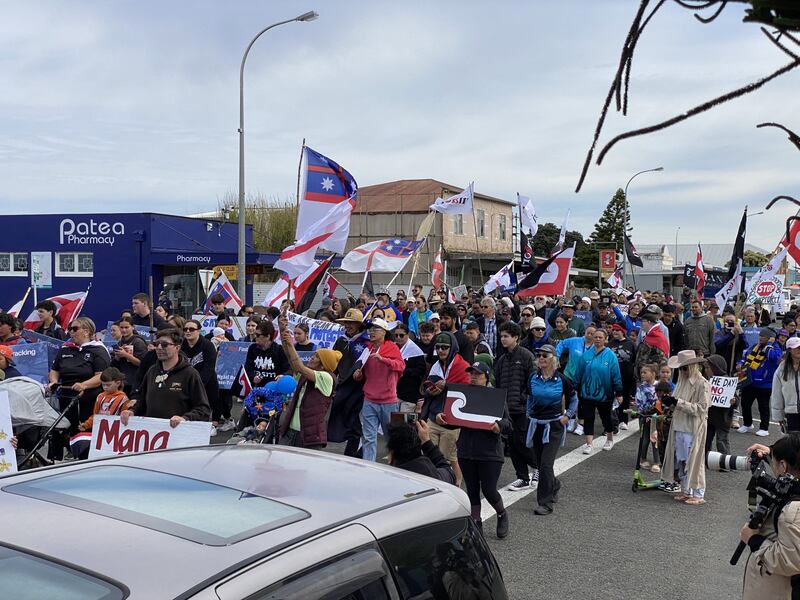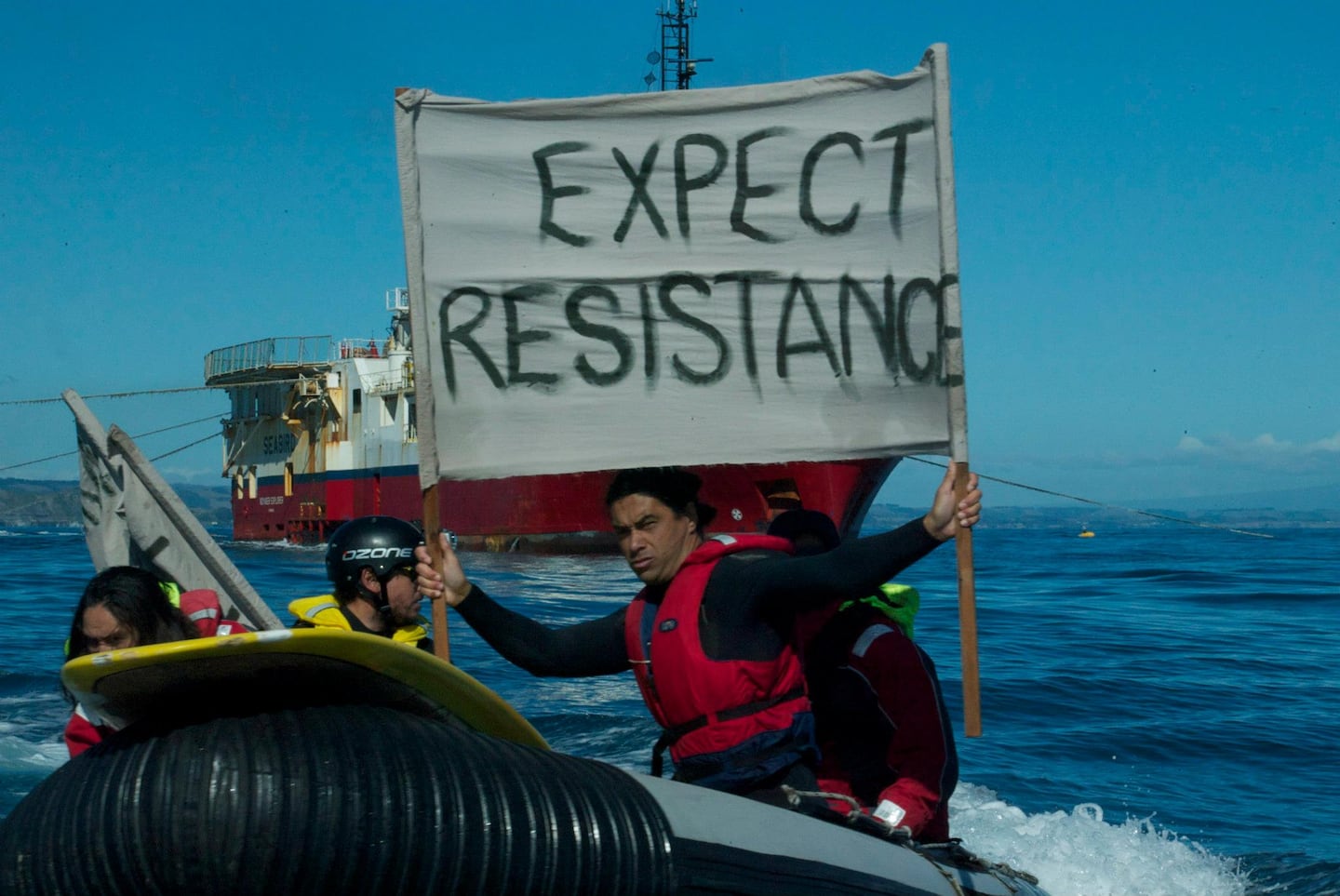National voters and green groups are lining up behind an iwi call for direct action against would-be seabed miners off the South Taranaki coast.
The government has accepted 149 projects to seek consents via its new fast track approvals process, which aims to speed resource development by downgrading social and environmental objections.
One fast track applicant is Australian miner Trans-Tasman Resources (TTR), which wants to dredge up 50 million tonnes of ironsand a year for 30 years, belching 45 million tonnes back into South Taranaki Bight after extracting valuable minerals.
At a protest in Pātea last Wednesday Te Pāti Māori co-leader Debbie Ngārewa-Packer called for boats and volunteers to disrupt future mining activity – and she said pledges have already been made.
“We’ve had numerous boat owners reach out to us to let us know that they are ready when we’re ready.
“And to be honest, a large proportion of those who have been fighting this are actually National supporters: those farmers, those fishermen, they are National voters.”
The three iwi of Aotea waka in Taranaki - Ngāti Ruanui, Ngāruahine and Ngaa Rauru Kiitahi – are united in opposition. Ngarewa-Packer belongs to all three and previously led Ngāti Ruanui’s iwi agency.
She’s also former deputy-mayor of South Taranaki and said multi-generation Pākehā farmers were visceral in their opposition.
“These kaupapa are so far above party politics and race.
“Nowhere else are we mana whenua, mana moana – but there’s also nowhere else but here that these [Pākehā] communities with five, six generations of mokopuna can call home. And lots of them are with us.”

Last month TTR almost quadrupled the size of its mining permit application nder the Crown Minerals Act, from 6600 to 24,300 hectares. The top 11m of the seafloor would be mined.
But it needs other consents to actually mine, especially to discharge the unwanted sand and sediment – a recognised pollutant.
Greenpeace spokesperson Juressa Lee said activists were taking their lead from Ngāti Ruanui and offering skills and experience.
“There is very broad opposition to Trans-Tasman Resources’ seabed mining project in the South Taranaki Bight, which includes mana whenua and some very unlikely allies… and what we can bring to that fight is the classic Greenpeace non-violent direct action.
“We already have a pledge from 12 ,000 supporters to companies trying to get their polluting projects a fast track that we will resist, and they can expect action.”
Climate Justice Taranaki researcher Catherine Cheung said members would act as the mining had no social licence.
“And it’s not just us: there’s a growing alliance and coalition of people who just cannot stand by and do nothing anymore.
“There are people who are willing to take direct action and that’s going to be critical, along with legal means and processes.”
The prime concern is the sediment plume – the finest materials spat from the mining ship would drift away uncontrolled to potentially settle on the extensive, teeming offshore reefs of the Pātea Banks.
The executive chairman of TTR – now a totally-owned subsidiary of Australian Manuka Resources – remains adamant the mining will be harmless.
“We have massive plans and an operating system that will totally protect that environment and will cause no harm whatsoever,” Alan Eggers said.
But before the company quit an Environmental Protection Authority hearing – to chase instead fast track approval – Judge Lyn Stevens emphasised that harm is certain.
“It’s inevitable there will be findings in this case of material harm in various respects and that’s been admitted.
“Our job will be to assess how significant such material harm is and given those findings how might conditions mitigate those. Or can they?”
Shane Jones, NZ First’s Minister for Oceans & Fisheries and Minister for Resources, told RNZ this week he’s not worried about that harm.
“I’m less concerned about the seabed than I am about the sickbed of economic anaemia in Taranaki.”
Latest figures show Taranaki’s 2023 GDP growth below the national average, but the region still enjoyed increasing employment and business numbers. Almost 40 per cent of total jobs are highly skilled, average for New Zealand.
Kiwis Against Seabed Mining were hoping the Australians would fail to convince the fast track approvals ‘expert panel’ that they could safely mine the wild Tasman Sea.
KASM chair Cindy Baxter said they need to see the final form of the Fast Track law.
“We don’t even know what the definition of ‘interested party’ is, for input.”
She said KASM hadn’t discussed direct action but members wouldn’t surrender.
“I’m not ruling anything in or out, but we will fight this to the very bitter end.”
The tumu whakarae of iwi agency Ngāruahine said Jones was wrong to say the campaign was taken over by Pāti Māori politics.
“This isn’t a political affiliation thing. This is a community thing,” Te Aorangi Dillon said.
“When it comes to things like this, we’re all one and the same and it’s not just Māori who are up and arms about this.”
That said, local tribes were absolutely united.
“No one down here in South Taranaki or Aotea waka is sitting around waiting for someone else to do it.”
LDR is local body journalism co-funded by RNZ and NZ On Air




